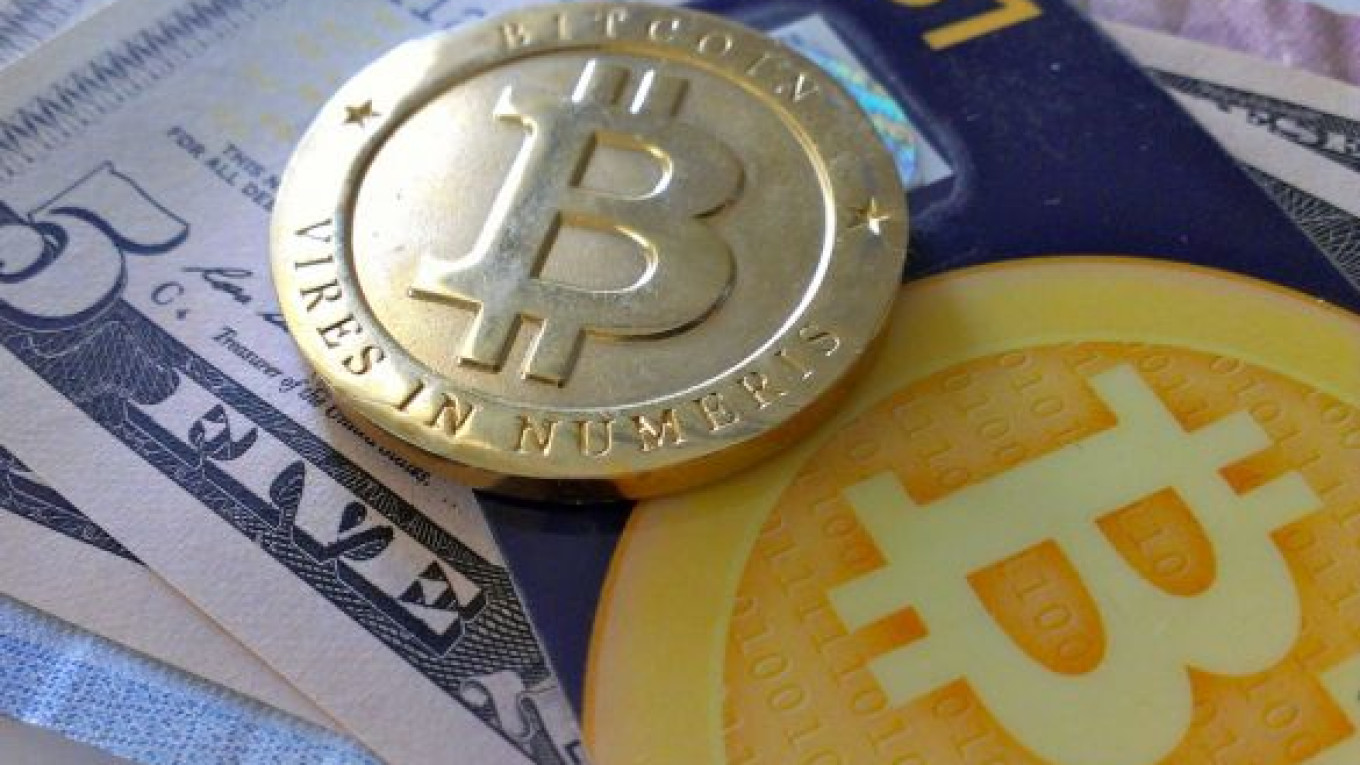The Central Bank has warned Russians that using the Bitcoin virtual currency may lead to real criminal charges, as police in the U.S. arrested top executives in the e-money operation amid a drug-trafficking and money-laundering investigation.
As part of the investigation into black market dealings, the U.S. Department of Justice said Monday that law-enforcement officers had arrested the chief executive of the Bitcoin payment processor BitInstant, Charlie Shrem, and a suspected underground Bitcoin exchanger, Robert Faiella.
Investigators suspect the two men of selling more than $1 million worth of bitcoins to users of the Silk Road website — an online marketplace that allowed users to shop anonymously for drugs and other illegal good — the Justice Department said in an online statement.
The Russian Central Bank issued its own statement Monday, warning Russians that the "anonymous nature" of Bitcoin operations may make people who use the virtual currency subject to real-life charges, including possible indictments for money-laundering or financing terrorism.
The Central Bank also warned that any businesses' involvement in Bitcoin trading or exchange for rubles or foreign currencies "will be regarded as having a potential involvement in dubious operations, according to laws against laundering illegal profits and the financing of terrorism."
Bitcoin — vilified by critics as a currency of drug dealers, contract killers and arms traffickers, and lauded by supporters as a brilliant online innovation — is a digital currency that first appeared as a private, peer-to-peer payment system in 2009 and has attracted increasing prominence in recent years.
Last month, Russia's Sberbank head German Gref said his bank planned to compete with bitcoins by issuing electronic money together with the online payment system Yandex.Money, a branch of the Yandex search engine.
A Message from The Moscow Times:
Dear readers,
We are facing unprecedented challenges. Russia's Prosecutor General's Office has designated The Moscow Times as an "undesirable" organization, criminalizing our work and putting our staff at risk of prosecution. This follows our earlier unjust labeling as a "foreign agent."
These actions are direct attempts to silence independent journalism in Russia. The authorities claim our work "discredits the decisions of the Russian leadership." We see things differently: we strive to provide accurate, unbiased reporting on Russia.
We, the journalists of The Moscow Times, refuse to be silenced. But to continue our work, we need your help.
Your support, no matter how small, makes a world of difference. If you can, please support us monthly starting from just $2. It's quick to set up, and every contribution makes a significant impact.
By supporting The Moscow Times, you're defending open, independent journalism in the face of repression. Thank you for standing with us.
Remind me later.


